Exploring the Development Sector through Data
India Data Insights (IDI) is a platform designed for the development sector. The IDI data team identifies relevant and reliable data assets, helping users harness the power of data and make it accessible to all. The team also publishes a monthly blog titled Data Dialogue, some of which have been featured by India’s leading development sector magazine, India Development Review.
Explore the blogs and articles I have supported as the in-house editor on the India Data Insights website.

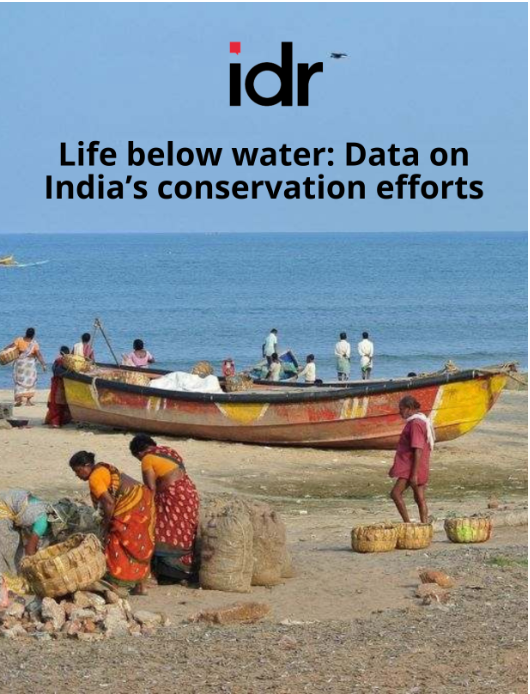


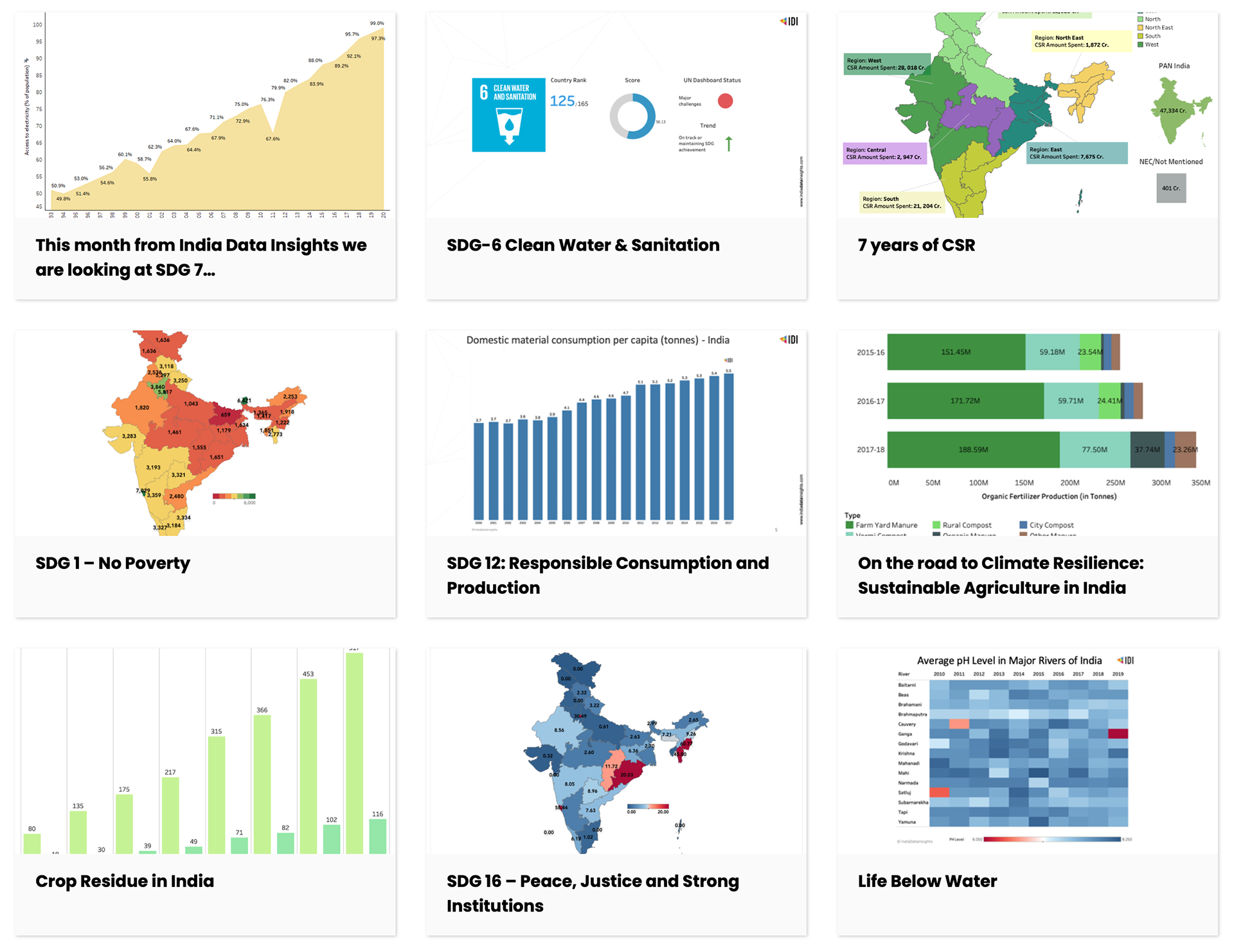
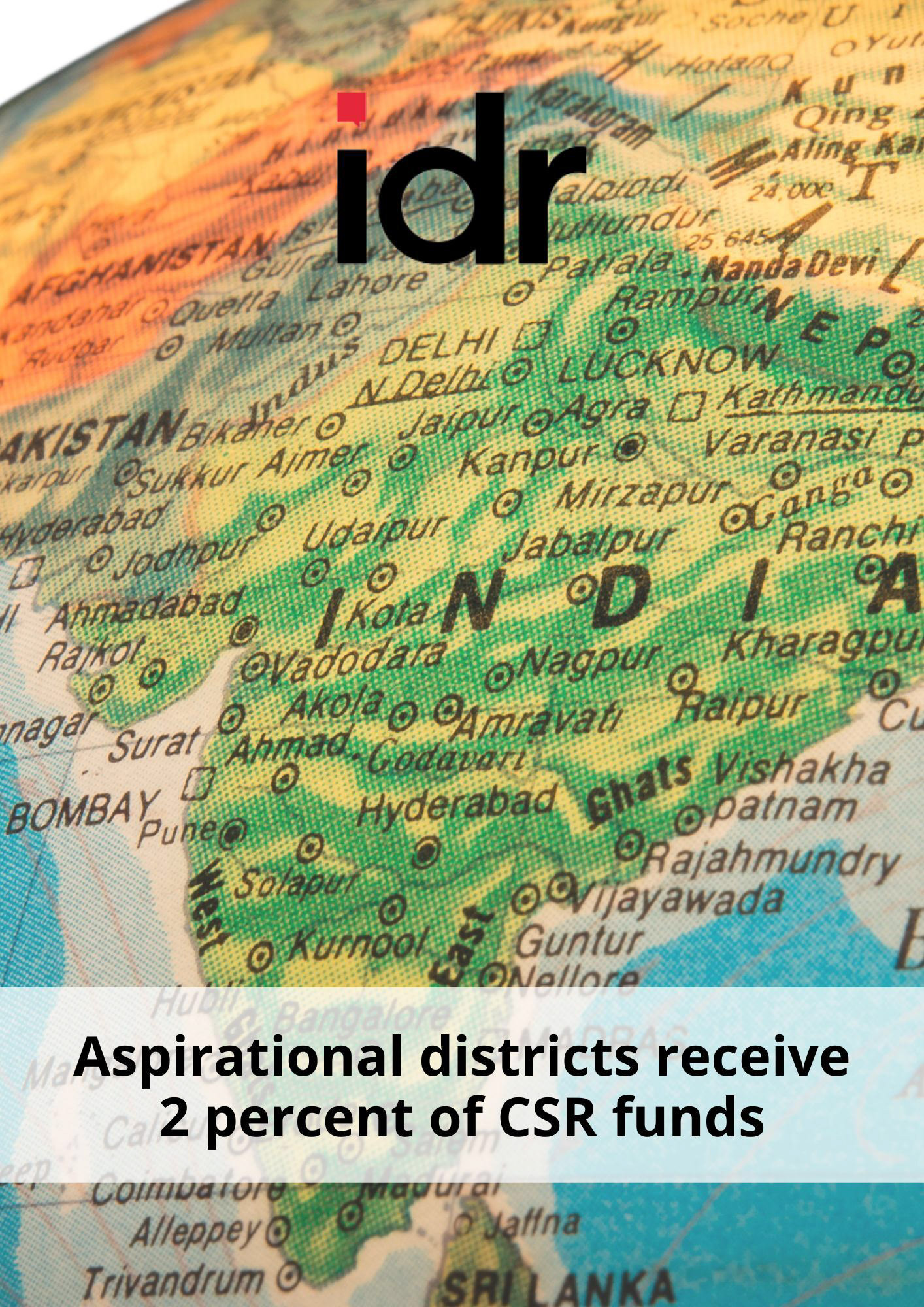
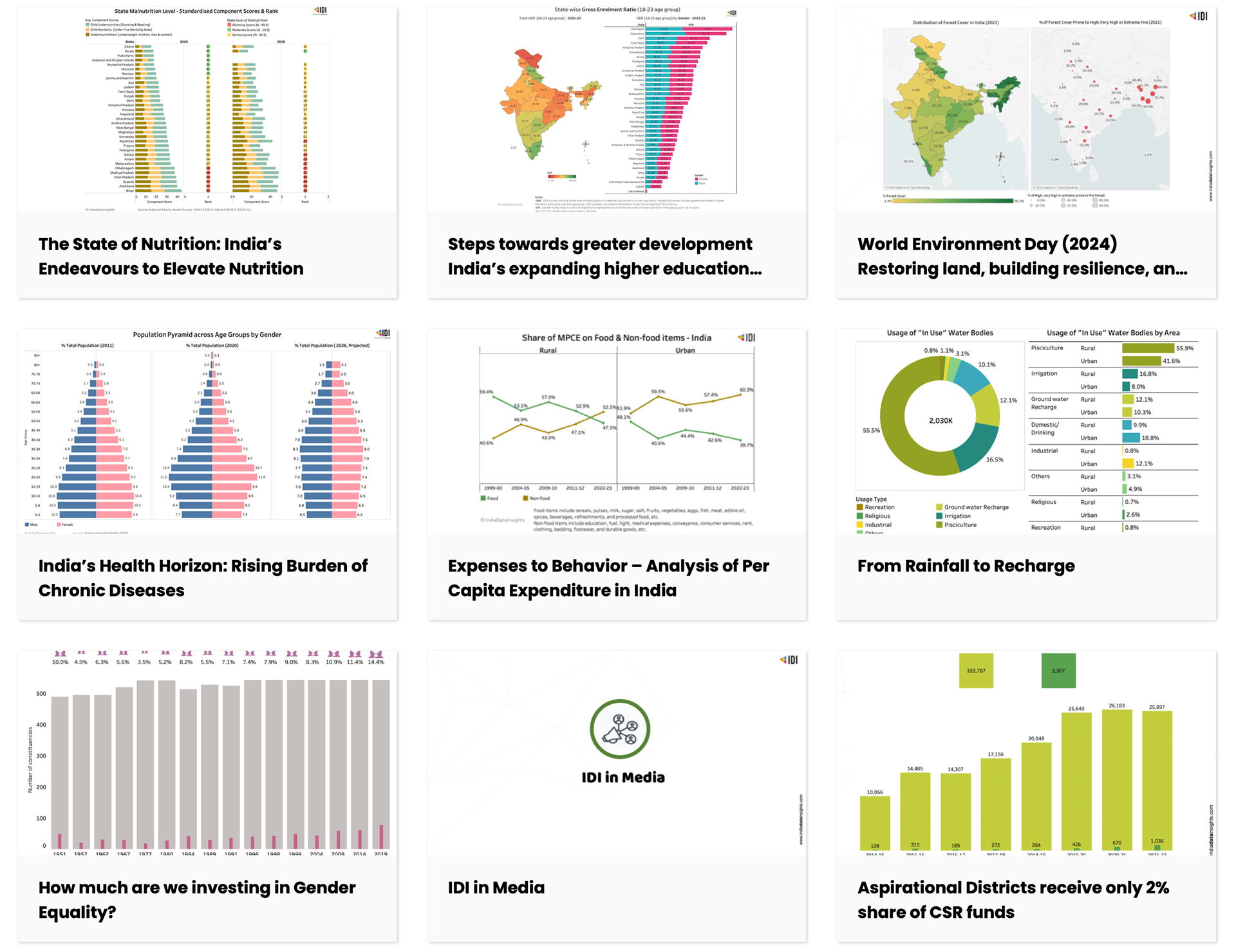
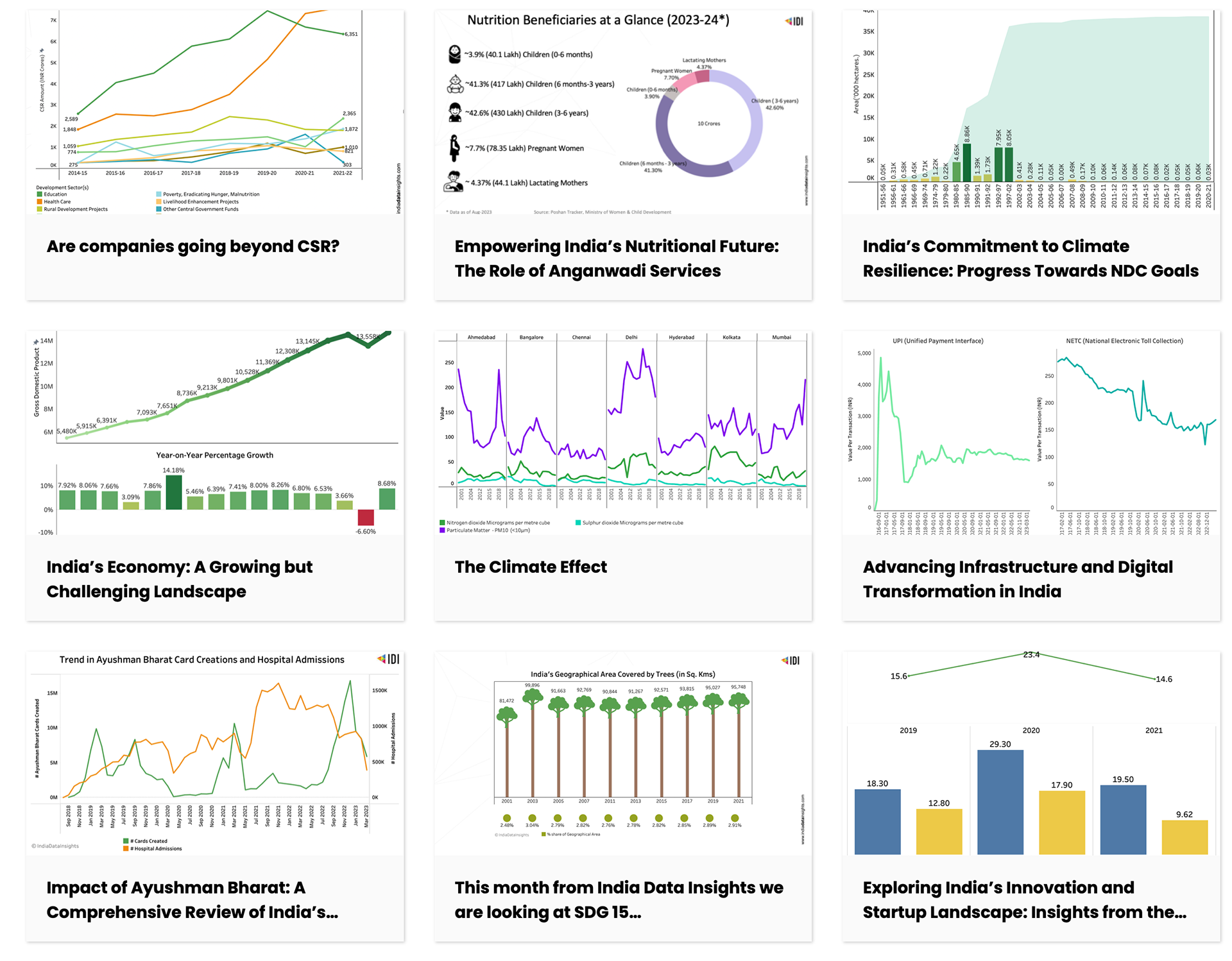
India Inc.: Achieving Sustainable Development Goals
I was privileged to contribute to a special edition of Business India titled "India Inc Achieving Sustainable Development Goals." in 2021. In this anniversary edition, I authored 17 articles focused on the United Nation's Sustainable Development Goals and India's progress towards achieving the National Determined Contributions as defined in 2015 during the COP summit in Paris.
I conducted an in-depth analysis of data on India’s progress toward all 17 Sustainable Development Goals (SDGs). This comprehensive review provided key insights into how India strategically aligns its development trajectory with global sustainability objectives, highlighting its commitment to sustainable growth. These articles were built around data insights created by the data analytics team from India Data Insights - a development sector-focused data platform built by Sattva Consulting.
Each article, titled 'Snapshot,' precedes a series of thought leadership articles by experts and company features from leading corporates, including Lenovo, Schneider Electric, TCS, DHL, and Blue Dart.
Business India is a fortnightly business news magazine founded by brothers Ashok Hotchand Advani, Hiroo Advani and Rajkumar Advani in 1978 and published in Mumbai, India. In 2001, the magazine had a circulation of 88,100 copies, which increased to 526,000 in 2006 and has been growing consistently.
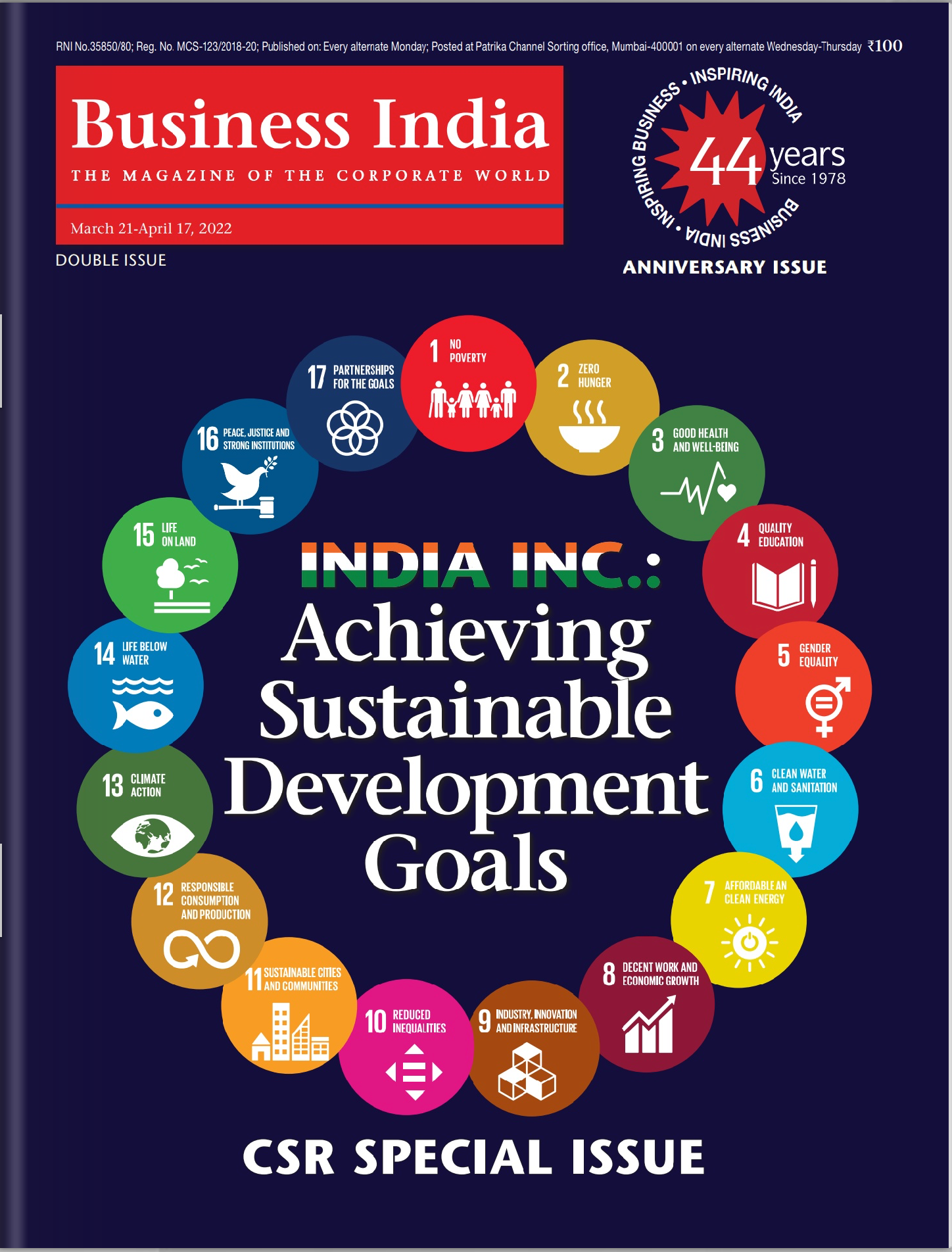
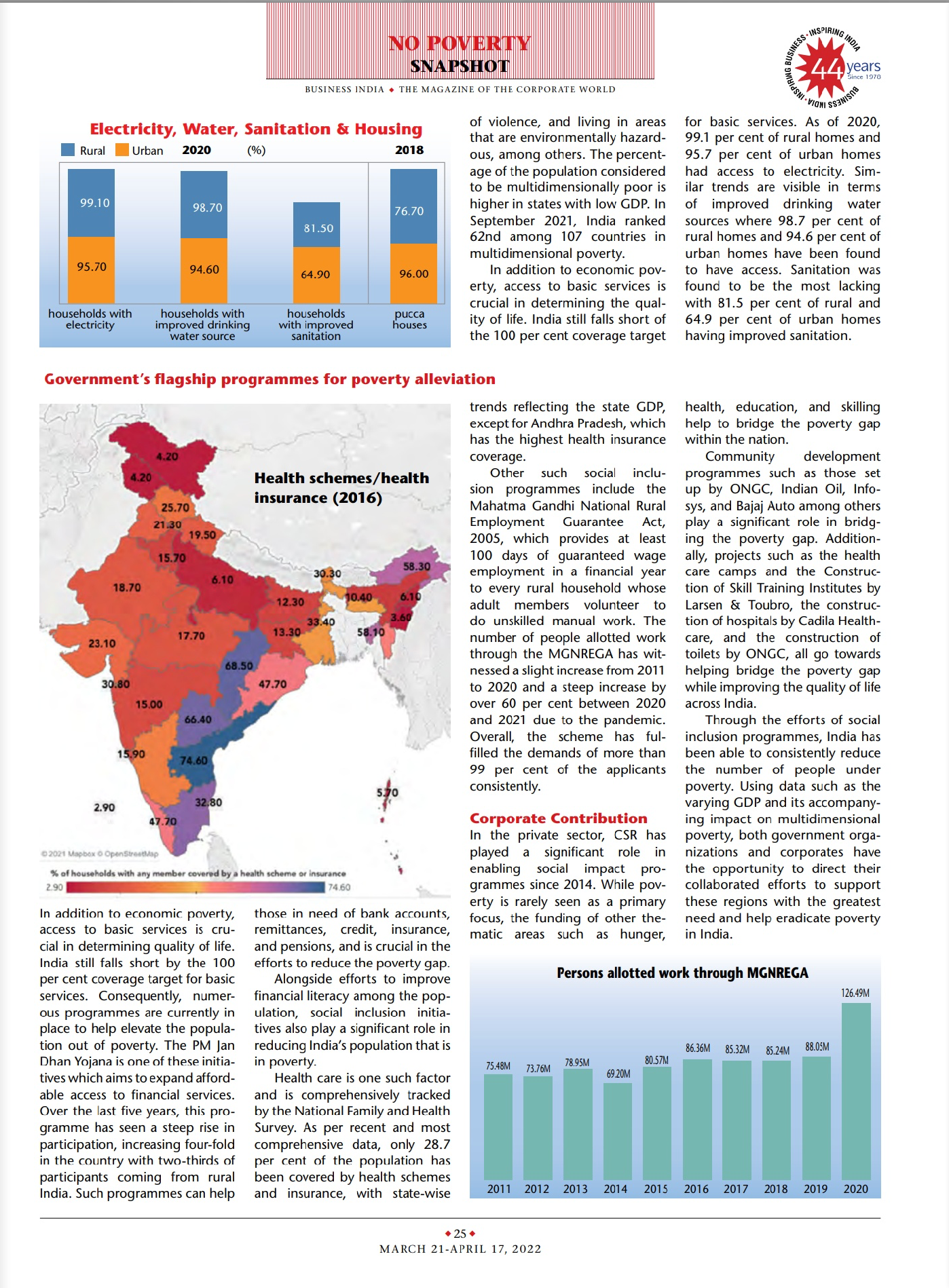
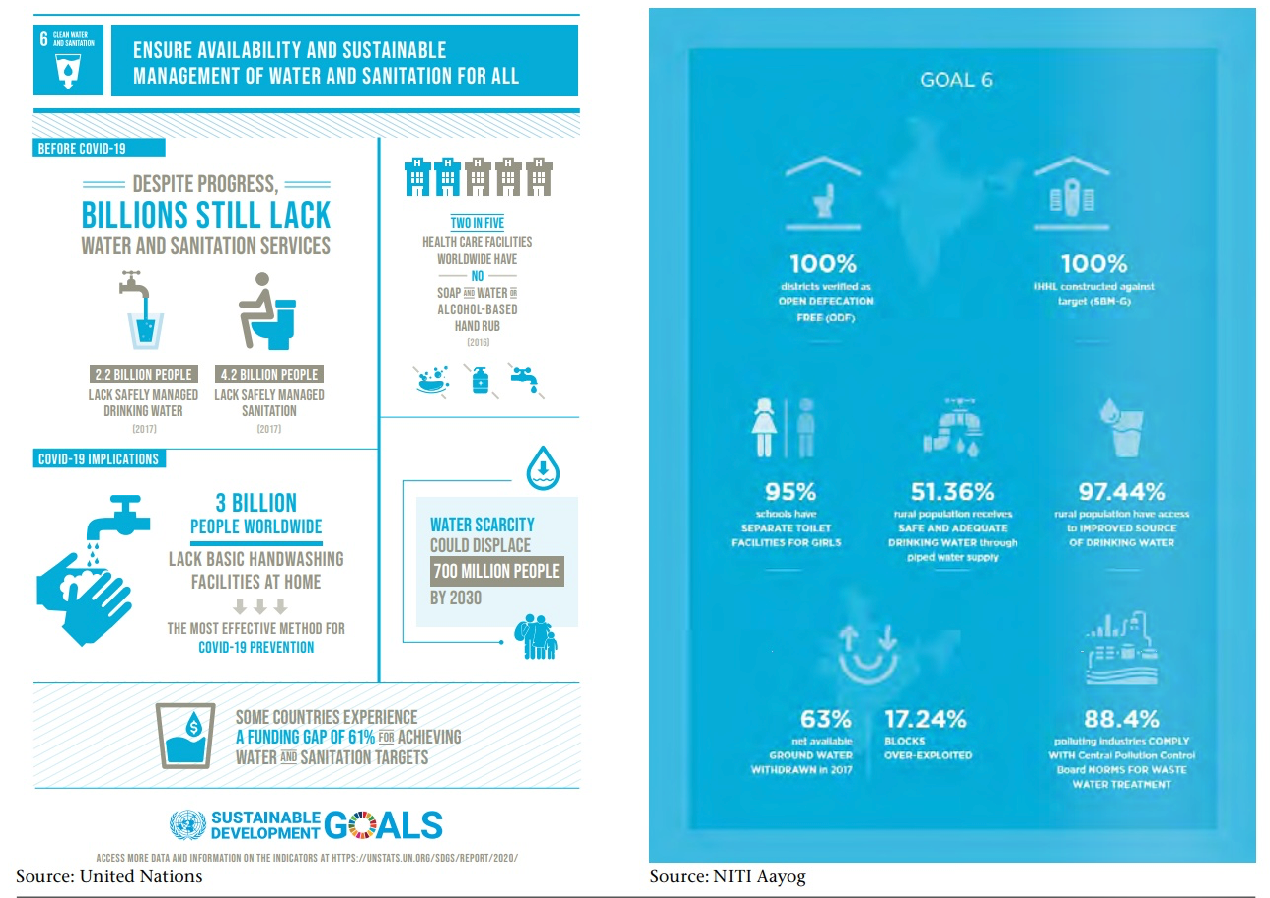
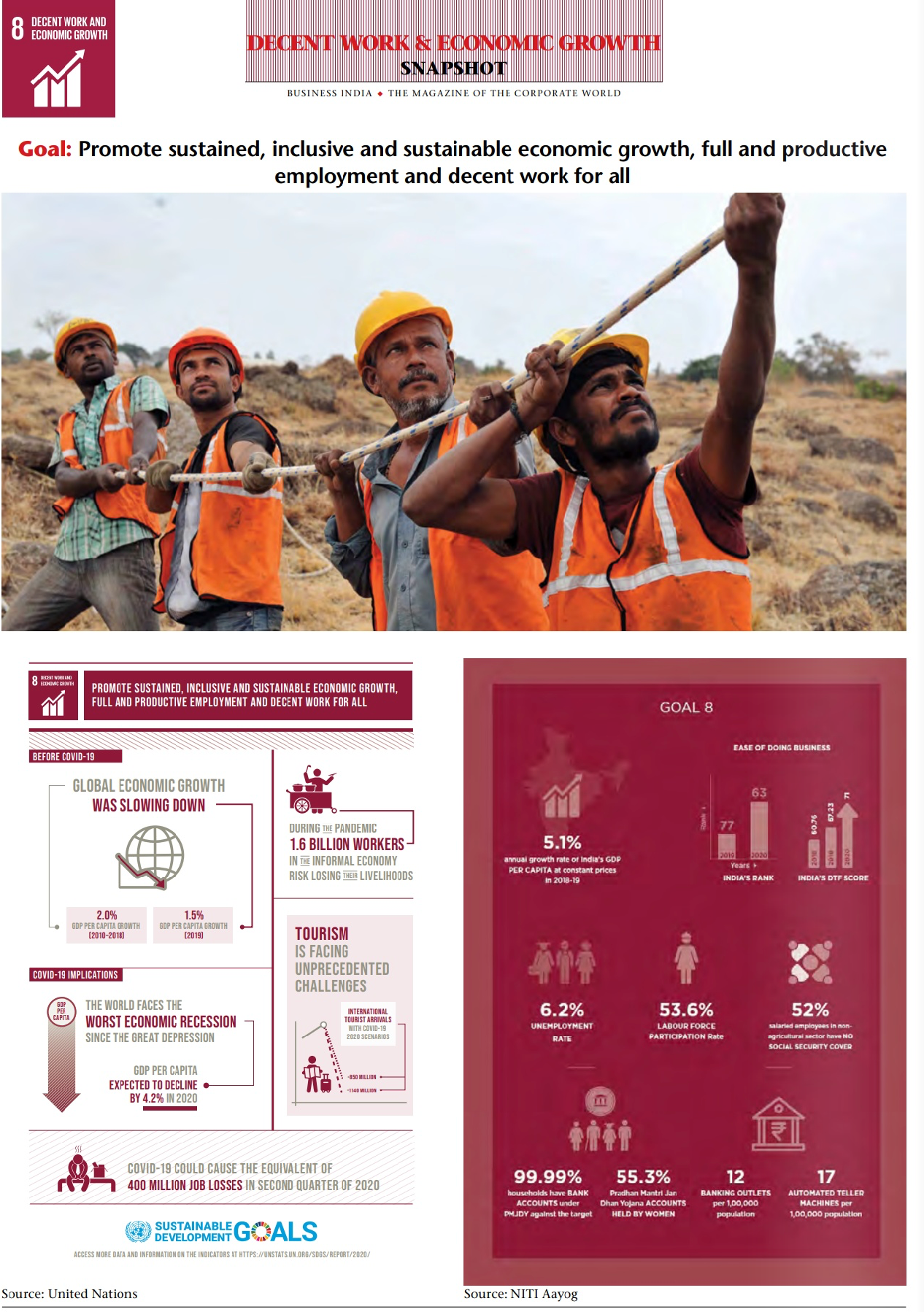
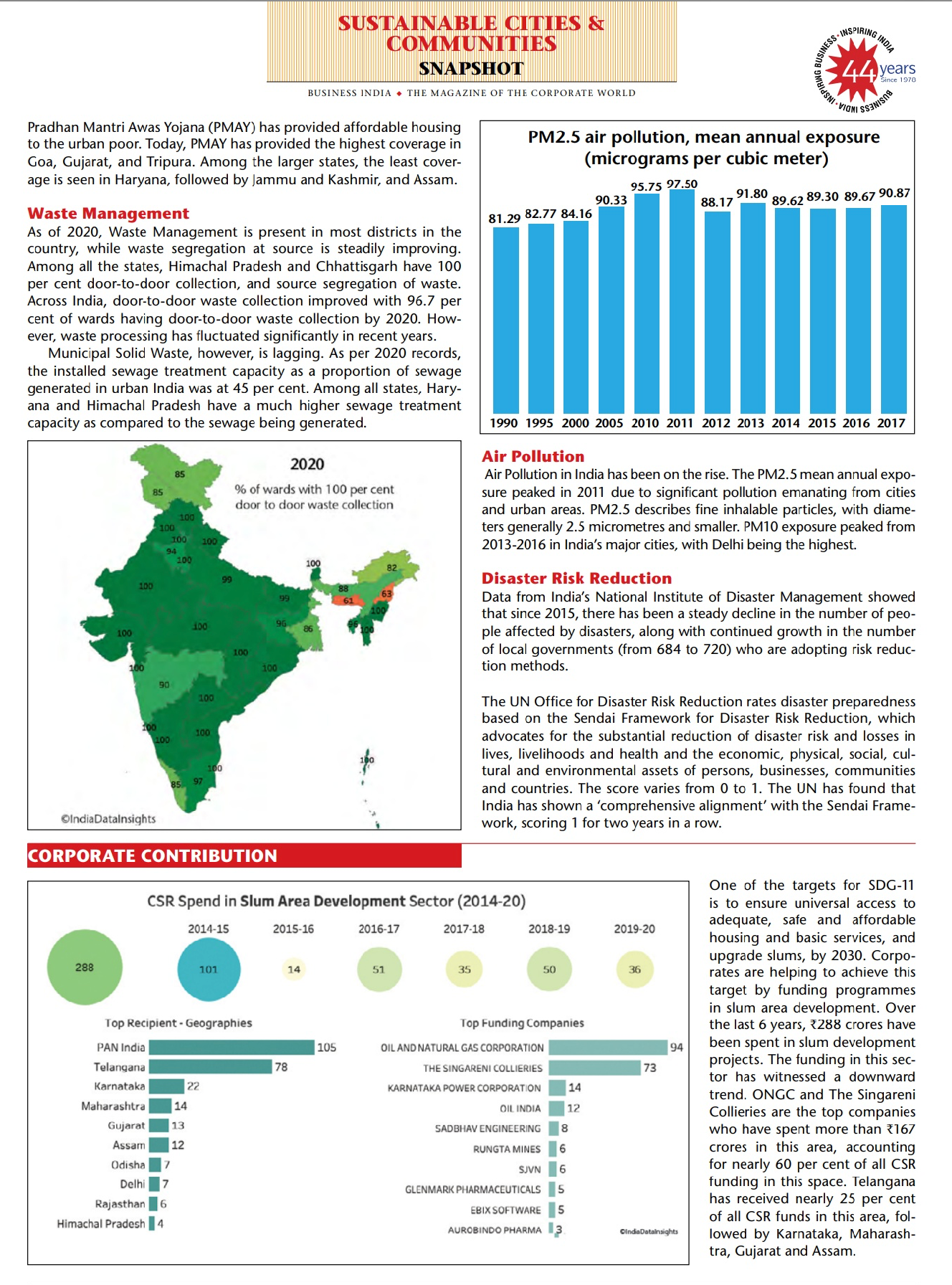
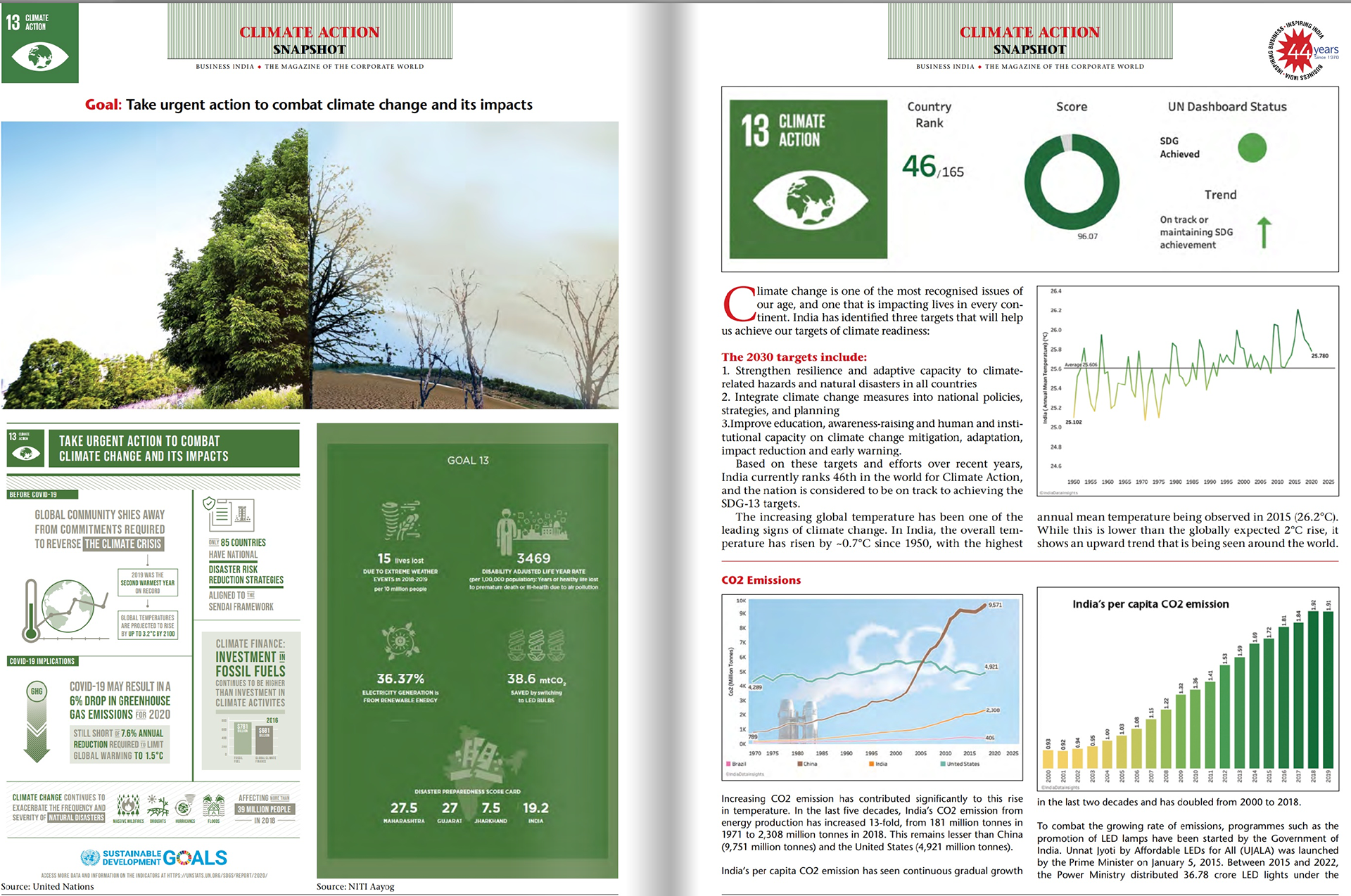
Environment, Social & Governance
ESG has recently gained prominence across Asia and Europe. As part of my work at Sattva Consulting, I had the opportunity to co-author articles on the subject and build a Business Sustainability and Responsibility Report (BRSR) for our India-based clients.
You can read all of them on the Sattva Consulting website and access them from the links below.
The article "Evolving ESG Regulations in India" discusses the growing significance of Environmental, Social, and Governance (ESG) practices in corporate strategies. With the introduction of the Business Responsibility and Sustainability Report (BRSR) by SEBI in 2021, companies are now required to report on their sustainability efforts, aligning with the National Guidelines of Responsible Business Conduct (NGRBC) and the UN's Sustainable Development Goals (SDGs). The article underscores that ESG adoption is essential for all businesses, marking a shift toward more responsible and transparent operations.
Corporate Social Responsibility (CSR) and sustainability both focus on positively impacting the environment and society and together they reflect a company’s commitment to its stakeholders. In India, introducing CSR obligations under the Companies Act of 2013 has driven significant contributions to national development, with over INR 92,605 Cr. spent on initiatives in education, healthcare, and the environment. As India’s economy continues to grow, businesses are increasingly aligning their CSR efforts with sustainability goals, working to reduce their environmental footprint while supporting social progress.
There is increasing attention on the ESG performance of organizations, which will influence the information businesses need to report. While many Indian companies currently use global frameworks like GRI and CDP, the introduction of SEBI’s Business Responsibility and Sustainability Reporting (BRSR) represents a significant step towards standardized ESG disclosure based on India’s own guidelines. At Sattva, we’ve prepared a note summarizing the evolution of ESG disclosures and conducted a data analysis of the top 20 companies across various industries to evaluate their readiness for BRSR. We believe that aligning with these new standards will help mitigate risks and address inconsistencies in reporting. As we continue to gather data and monitor industry trends, we welcome discussions on how these changes can impact your business.